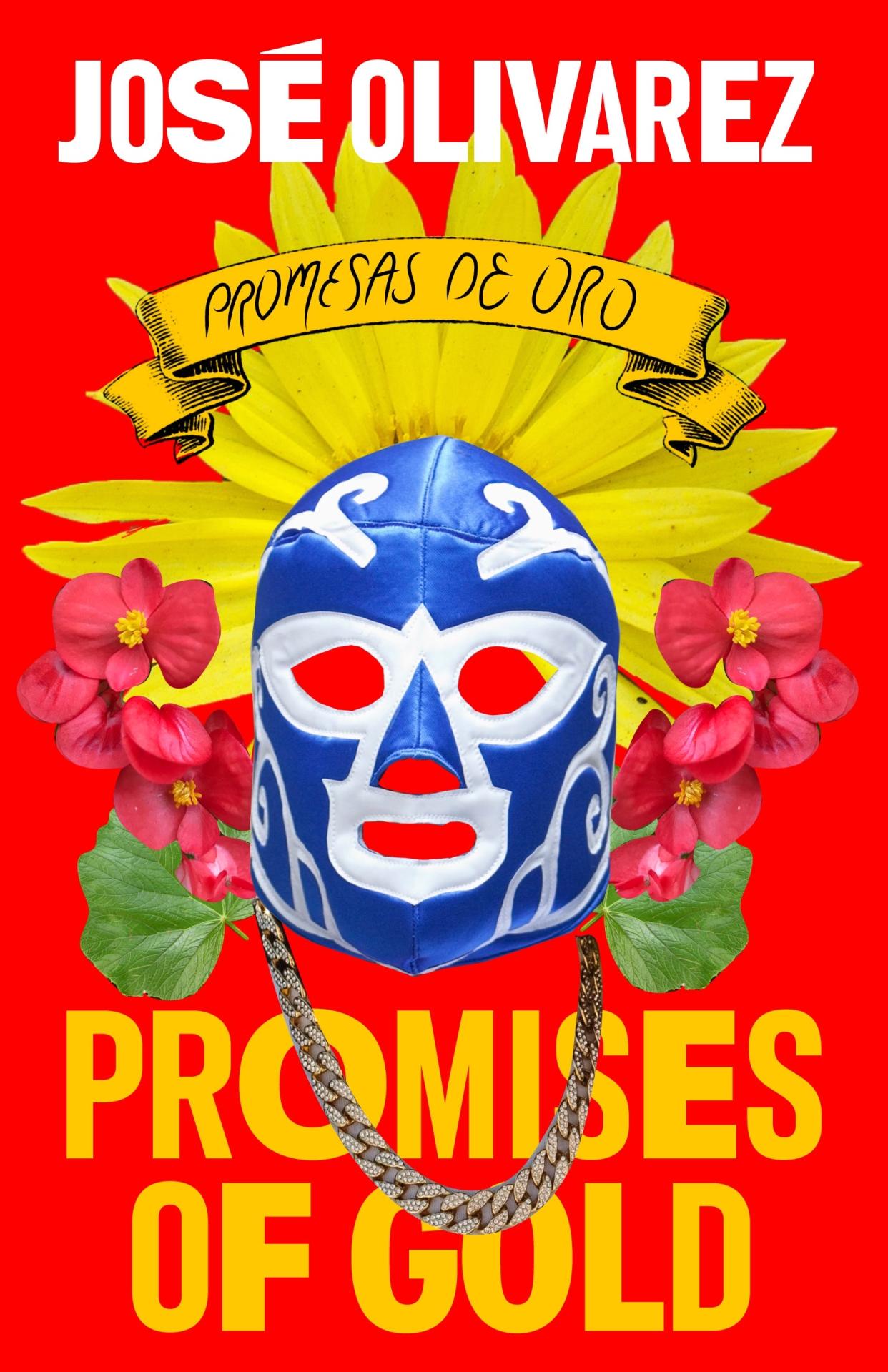How José Olivarez illuminates the mundane, makes poetry accessible with 'Promises of Gold' collection

Eight hundred miles away from his family during COVID lockdown, Chicago poet José Olivarez was thinking about love: familial, brotherly, romantic, platonic and self kinds of love.
"It felt to me romantic love was given the most airplay in books, movies and TV shows," Olivarez tells USA TODAY. "The more I thought about it, friendships are really those relationships that aren't necessarily permanent, but they're so important and so meaningful. Yet, they're not usually the focal point of many books that I was reading or movies that I was watching."
For his second poetry collection, "Promises of Gold" (Henry Holt and Co., 320 pp., out now), Olivarez "thought maybe I could try and write some poems that way." His poems don't solely focus on the big love he feels for friends, family and his community though – they take pride in their welcoming nature, to urge readers to "allow poetry into your life," a genre that's often deemed intimidating.
Poetry's accessibility, however, isn't just a matter of whether you "get" the meaning behind it; it also matters who is able to read it, to begin with. To broaden his audience, Olivarez published "Promises of Gold" as a two-in-one Spanish and English book, translated by fellow poet David Ruano González.
Celebrating the mundane
Olivarez, whose debut book of poems, "Citizen Illegal," was a winner of the 2018 Chicago Review of Books Poetry Prize, also illuminates the mundane in his second poetry collection. He writes of the "fake gold chain on my neck," the joys of hanging with friends at the mall "where we can't afford anything" and about fried tortillas "sprinkled with sugar dessert."
"I like to write poems about food that I eat and I like to write about those things because the everyday deserves to be celebrated," the "Poetry Gods" podcast co-host says. "These things that we encounter all the time are worthy of poetry and are worthy of art to me."
He's intentional about the genuine connection he wants his poems and "the communities that I love" to have. "The door is open for anyone else that wants to read the book and be part of the conversation," he adds.
Ada Limón named country's next poet laureate: 'Her accessible, engaging poems ground us'

"Promises of Gold" grapples with the contradictions of the American Dream unearthing the ways in which "love is complicated by forces larger than our hearts," he writes, and tackles belonging and intergenerational trauma through the lens of love.
"As I would sit down to write, I would notice these textures of sadness or longing or the uncertainty of what was happening in the world trickle into these poems," Olivarez says.
Writing odes to his community, his homies
He dedicates poems to the uneventful moments that leave a mark, tries to make sense of machismo and gender roles in Latino families, and writes odes to his homies and to the person he'll "spend the rest of my life writing & rewriting poems for."
Angry? Heartbroken? Here's a free treatment with no side effects: Poetry
Often Olivarez also writes with his three younger brothers in mind. ("For my brothers," reads the book's dedication page.)
"How can I write poems that they'll want to read? Would it make them smile? Would it make them sit down and have a conversation with me? Would they want to share it with their friends? That's important to me because it's a test of if the poem is working," he says.
The son of Mexican immigrants, his background in education and work with youth is palpable in his tender, aching and evocative collection.
His determination to uplift his community dates back to teaching a poetry workshop to in Los Angeles. Parents told him how much they enjoyed learning alongside their kids, but also wished they understood what their kids were reading.
"That moment stayed with me, and I hope families will now read ('Promises of Gold') together," he says. "It's important for bilingual families to have those experiences because it occurred to me, too, that I didn't have many books that I could share with my parents that I was reading in school."
A 'renaissance' is upon us: Interest in poetry on the rise after year of pandemic, chaos
Finding his way to poetry
Growing up, it wasn't the norm for Olivarez to "read or encounter books about people that were the children of immigrants, working class or from the vantage point of Calumet City, Illinois."
The literature he was exposed to in school was about "rich people and noble people," he says, aka the English literary canon. "I come from humble people, right," Olivarez adds, "so for me what led me to really see poetry as something exciting and something approachable was when I was a high school student."
He joined his school's poetry slam club when he learned it "was the only space in the entire school that I knew of, where the students were talking and the teachers were quiet."
It helped him find his voice. "In those moments, it occurred to me you can write stories about our neighborhoods, about hard topics that we didn't get a chance to talk about on a daily basis, whether it be race, sex or class or all these issues. It just felt powerful to me."
At first, Olivarez says he would "very nervously" hand in his poetry at slam meetings but quickly "I just grew to love it." It gave him a deeper purpose, too.
"It gave me a sense of … maybe there is more possible for me than what I thought."
More interviews with Latino authors:
Sandra Cisneros: 'Woman Without Shame' author talks sexual desires and feeling 'empowered in my 60s'
Rafael Agustin: 'Jane the Virgin' TV writer revisits the moment he learned he was undocumented in new memoir
Erika L. Sanchez: Chicago author wants women of color to feel seen in 'Crying in the Bathroom'
Danny Trejo: 'Machete' actor talks memoir, toxic masculinity and how his daughter 'helped me change my life'
Chiquis Rivera: Singer reflects on mother Jenni Rivera's death, her divorce and feeling 'Unstoppable' in new memoir
This article originally appeared on USA TODAY: Jose Olivarez's 'Promies of Gold' explores love in all its forms, more
